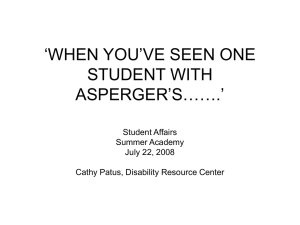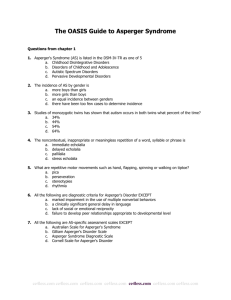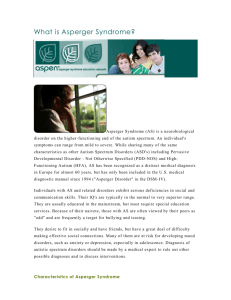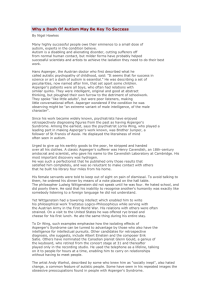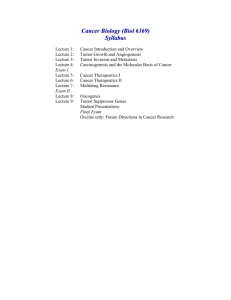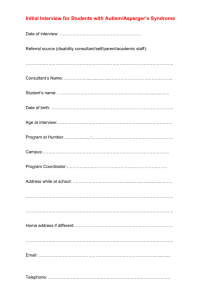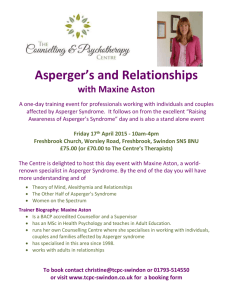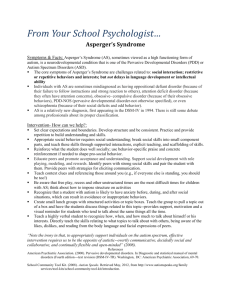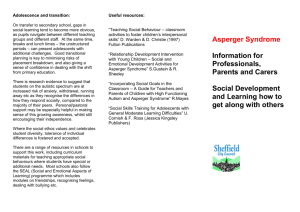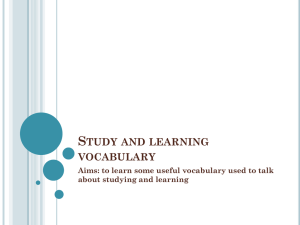Study and disclosure tips for students with Asperger Syndrome
advertisement
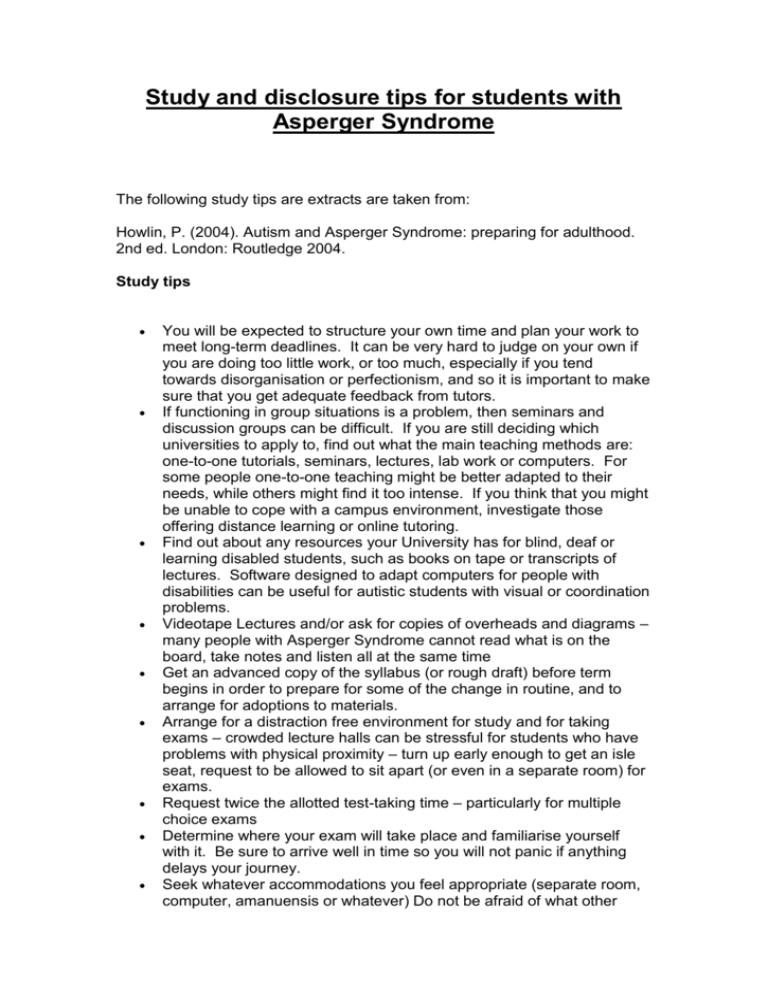
Study and disclosure tips for students with Asperger Syndrome The following study tips are extracts are taken from: Howlin, P. (2004). Autism and Asperger Syndrome: preparing for adulthood. 2nd ed. London: Routledge 2004. Study tips You will be expected to structure your own time and plan your work to meet long-term deadlines. It can be very hard to judge on your own if you are doing too little work, or too much, especially if you tend towards disorganisation or perfectionism, and so it is important to make sure that you get adequate feedback from tutors. If functioning in group situations is a problem, then seminars and discussion groups can be difficult. If you are still deciding which universities to apply to, find out what the main teaching methods are: one-to-one tutorials, seminars, lectures, lab work or computers. For some people one-to-one teaching might be better adapted to their needs, while others might find it too intense. If you think that you might be unable to cope with a campus environment, investigate those offering distance learning or online tutoring. Find out about any resources your University has for blind, deaf or learning disabled students, such as books on tape or transcripts of lectures. Software designed to adapt computers for people with disabilities can be useful for autistic students with visual or coordination problems. Videotape Lectures and/or ask for copies of overheads and diagrams – many people with Asperger Syndrome cannot read what is on the board, take notes and listen all at the same time Get an advanced copy of the syllabus (or rough draft) before term begins in order to prepare for some of the change in routine, and to arrange for adoptions to materials. Arrange for a distraction free environment for study and for taking exams – crowded lecture halls can be stressful for students who have problems with physical proximity – turn up early enough to get an isle seat, request to be allowed to sit apart (or even in a separate room) for exams. Request twice the allotted test-taking time – particularly for multiple choice exams Determine where your exam will take place and familiarise yourself with it. Be sure to arrive well in time so you will not panic if anything delays your journey. Seek whatever accommodations you feel appropriate (separate room, computer, amanuensis or whatever) Do not be afraid of what other students might think or how professors will react; these are your right and might make the difference between success and failure. Prioritise anything else that is going on in your life so that it will not compete with your time for preparing and revising for your exams and otherwise stress you out. Disclosure Tips Most Universities make adequate provisions for students with physical disabilities, but few have even heard of HFA/AS, let alone considered the possibility that it might affect any of their students. Many people still assume that if you can talk, let alone go to university, you can not really be autistic. If you have any special needs, or just want university staff to be aware of areas in which you may function differently, you may have to educate them yourself. Some people choose not to tell (especially if they are concerned about privacy or think that staff may be unsympathetic or hostile) but it does make things harder if any autism related problems do arise. If you do choose to tell it is best not to leave it until a crisis; this makes it more likely that ignorant people will assume that it is just an excuse. It is easier to get unexpected special needs met if people have been informed of your disability well in advance. Remember you do not have to choose between ‘telling everyone’ and ‘telling no one’. You can choose to tell a few people that you trust and ask them to keep it strictly confidential. The most useful thing that you can do is to give an official medical letter stating your diagnosis and giving a brief explanation of the ways in which it is likely to affect you (keep a copy with you at all times). If you can anticipate any special requirements, ask your clinician to specify them in a letter. The second most useful thing you can have is a short paper explaining HFA/AS with particular reference to people of university age.
